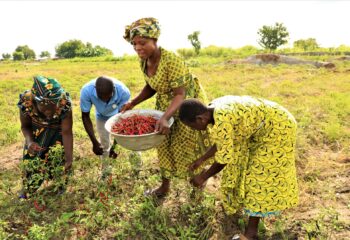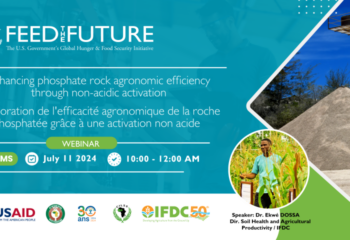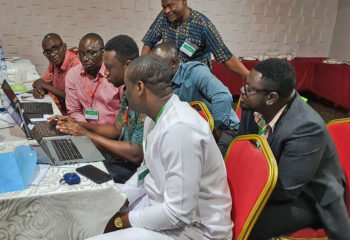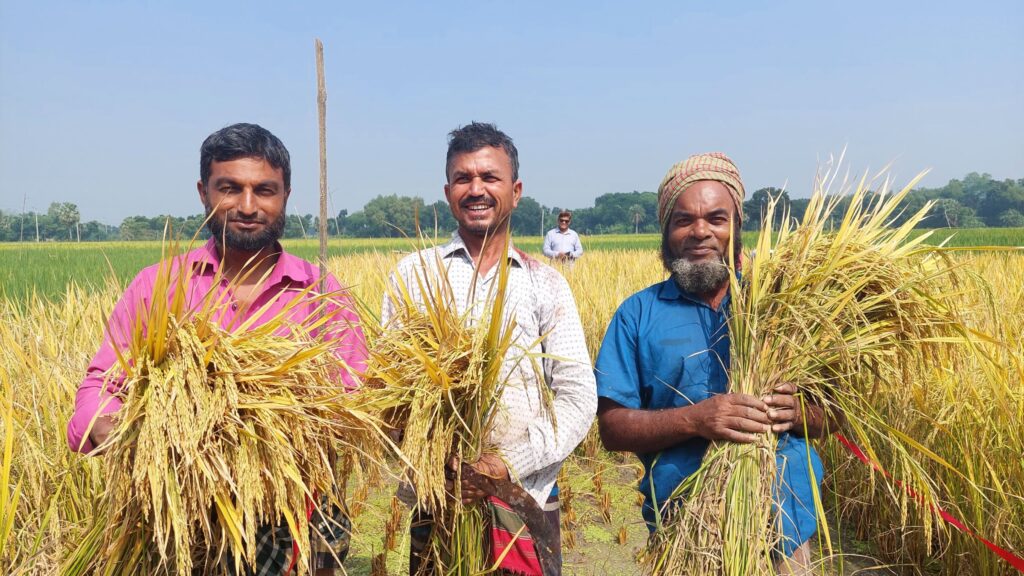
Feed the Future Bangladesh Climate Smart Agriculture Project, funded by the United States Agency for International Development (USAID) and implemented by IFDC, is actively contributing to positive changes across the districts within the Feed the Future Zone of Influence (ZOI). Thirteen of these districts, spanning 74 upazilas, are directly impacted due to their proximity to the sea, grappling with challenges such as cyclones, storm surges, tidal surges, and seasonal flooding. The consequential outcome of these natural disasters is soil inundation, resulting in heightened salinity that poses a significant threat to agricultural productivity. The project, a collaborative effort among USAID, IFDC, and the Government of Bangladesh (GOB) exemplifies a commitment to resilient and sustainable agricultural practices in the targeted regions of Bangladesh.
On World Soil Day, celebrated on December 5, the project stands as a beacon of sustainable practices and resilience in the face of climate challenges. By leveraging this occasion, the project will engage local communities, farmers, and stakeholders to highlight the role of CSA in mitigating soil degradation and adapting to changing climatic conditions. Emphasizing the link between sustainable soil management and enhanced agricultural productivity, the project will foster a deeper understanding of the critical role that soil health plays in ensuring food security and sustainable livelihoods in the context of climate change.
This significant day offers an opportunity for the project to highlight its impact on soil health and underscore the importance of climate-smart agricultural (CSA) practices.
In the southern region of Bangladesh, natural disasters pose a significant challenge, as they lead to soil flooding and salinization, creating adverse conditions for crop cultivation. This happens when cyclones and tidal surges interact, saturating the soil with salt. Seasonal flooding makes it even worse, putting the productivity of farmland at risk.
The soil in ZOI districts varies from strongly acidic to alkaline, highlighting the need for focused interventions. High and medium-high land soils are usually more acidic, while the organic matter in most soils is above the critical level of 2%, except in high land soils. However, the levels of phosphorus, potassium, and zinc are below what plants need, presenting challenges to sustainable crop production.
In such locations, farmers grow Aman (rainy season) rice, causing difficulties in planting Rabi crops due to late Aman rice harvests. Challenges like prolonged water logging, late water recession after the monsoon, tidal flooding, and low cropping intensity further hinder agricultural production. Soil salinity increases during the dry season, reaching levels unsafe for crops, decreasing soil health.
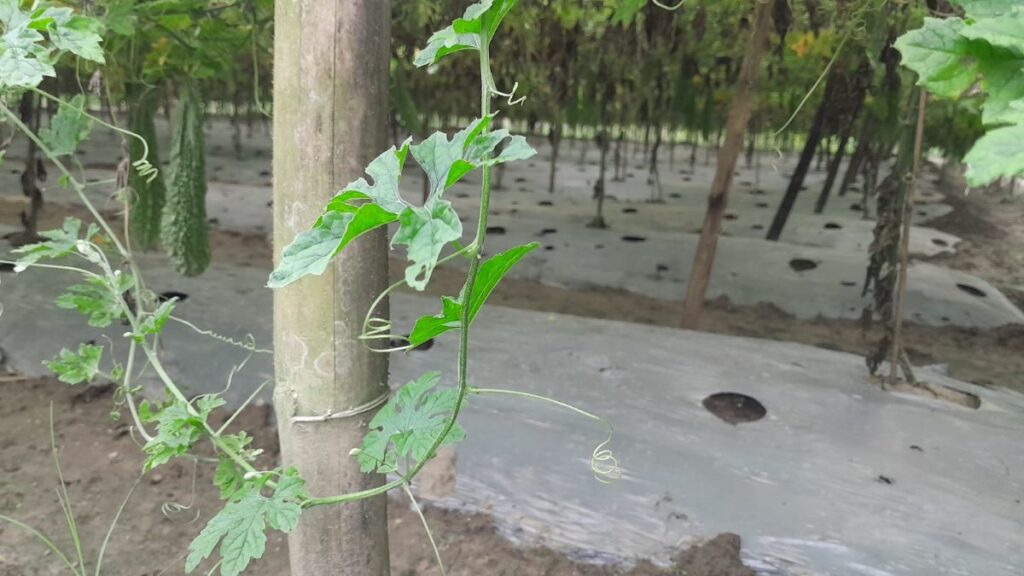
To address these challenges, the project considers crucial and custom-made adaptation options. Strategies include growing crops that can manage salt, using “mulch” to prevent water evaporation, irrigating with non-salty water, and collecting rainwater for irrigation. Dealing with low cropping intensity involves introducing short-duration Aman rice varieties, promoting Aus rice cultivation, and using zero-tillage for planting on muddy soil. Effectively managing sluice gates and using farm pond technology will also help counteract soil salinity.
To tackle waterlogging, innovative approaches like Sorjan farming, combining year-round vegetable and fruit cultivation with seasonal fish farming, can contribute to food security and economic sustainability, as well as productive soil health. Managing soil fertility with recommended fertilizers plays a vital role in sustaining agricultural productivity. Producing Vermi-compost emerges as a powerful strategy, not only improving soil fertility but also providing income opportunities for women and youth.
In the pursuit of resilience and sustainability regarding soil health, the Feed the Future Bangladesh Climate Smart Agriculture Project navigates the challenges of CSA in Bangladesh. This comprehensive approach, combining technology, adaptive farming, and community engagement, reflects the collaborative spirit and commitment to transformative change that defines the project’s development efforts in this country.
The Feed the Future Bangladesh Climate-Smart Agriculture Activity is one of the many assistance activities supported by the American people through the United States Agency for International Development (USAID).



